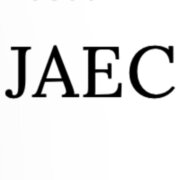Best E-commerce & Internet Law Lawyers in Luxembourg
Share your needs with us, get contacted by law firms.
Free. Takes 2 min.
List of the best lawyers in Luxembourg, Luxembourg
About E-commerce & Internet Law in Luxembourg, Luxembourg
E-commerce and Internet Law in Luxembourg is a dynamic and evolving field that encompasses the regulation of online businesses, internet transactions, data protection, electronic communications, and digital marketplaces. Given Luxembourg's status as a financial and technological hub, laws governing e-commerce and the internet are designed to create a secure environment for digital businesses and consumers alike. Luxembourg follows European Union directives closely, integrating them into national laws, which ensures alignment with broader European standards and practices. This legal area covers diverse issues such as online consumer protection, electronic contracts, privacy regulations, and cybersecurity.
Why You May Need a Lawyer
There are several situations where individuals or businesses might seek legal advice in E-commerce & Internet Law, including:
- Starting an online business: Guidance on compliance with local and EU laws.
- Contract issues: Drafting, reviewing, or disputing electronic contracts or terms of service.
- Data protection: Ensuring compliance with GDPR and other data privacy regulations.
- Intellectual property: Protecting digital content, trademarks, or patents.
- Consumer disputes: Handling complaints or litigation related to online sales and services.
- Cybersecurity: Navigating legal obligations regarding data breaches and cyber threats.
- Electronic payments: Managing legal aspects of payment systems and financial transactions online.
- Advertising compliance: Ensuring marketing activities meet regulatory standards.
Local Laws Overview
Luxembourg's legal framework for e-commerce and internet activities is comprehensive, with particular attention to the following aspects:
- Electronic Commerce Law: Based on the EU e-commerce directive, setting out rules for online sales and services.
- General Data Protection Regulation (GDPR): Ensures the protection of personal data of individuals within the EU.
- Electronic Communications Law: Regulates the provision of electronic communications services and networks.
- Consumer Protection Law: Implements EU directives on consumer rights and distance selling.
- IP Laws: Protect intellectual property rights in the digital sphere.
- Cybersecurity Framework: Addresses preventive measures and responses to cyber threats.
Frequently Asked Questions
1. What are the key legal requirements for starting an e-commerce business in Luxembourg?
You need to register your business with the Luxembourg Trade and Companies Register, comply with e-commerce regulations, and ensure your website adheres to consumer protection laws and data privacy standards.
2. How does GDPR affect my e-commerce business?
GDPR requires businesses to protect the personal data of EU citizens. You must obtain explicit consent for data processing, ensure data security, and provide users with data access and deletion rights.
3. Are electronic contracts legally binding in Luxembourg?
Yes, electronic contracts are legally binding as long as they meet the legal requirements of consent, consideration, and objectivity. Ensure clear and accessible terms of service for users.
4. How can I protect my intellectual property online?
Register your trademarks, patents, and copyrights. Monitor the web for unauthorized use and enforce your rights through legal action if necessary.
5. What should I include in my website’s privacy policy?
Your privacy policy should outline how you collect, use, and protect user data, detail users' rights under GDPR, and provide contact information for data privacy concerns.
6. What obligations do I have in case of a data breach?
You must notify the competent data protection authority and affected individuals without undue delay, typically within 72 hours of becoming aware of the breach.
7. Can I sell internationally from Luxembourg without additional legal considerations?
Yes, but you must comply with the laws of the countries you are selling to, particularly concerning consumer protection, VAT, and customs regulations.
8. What are the rules for online advertising in Luxembourg?
Advertisements must be truthful and not misleading. You must comply with the EU's unfair commercial practices directive and provide clear differentiation between editorial and promotional content.
9. Is there a legal requirement for storing user consent records?
Yes, GDPR mandates keeping records of user consent to demonstrate compliance. Utilize robust systems to track and store permissions granted by users.
10. How can I ensure secure electronic payments on my platform?
Implement strong security measures, comply with the EU's Payment Services Directive 2 (PSD2), and use secure payment gateways to protect financial transactions.
Additional Resources
Here are some resources that can provide further assistance:
- National Commission for Data Protection (CNPD): Offers guidelines on GDPR compliance and data protection issues.
- The Luxembourg Chamber of Commerce: Provides support for businesses navigating e-commerce regulations.
- Luxembourg Digital ICT Security Agency (SECURITYMADEIN.LU): Offers resources and guidance on cybersecurity.
- European Consumer Centre Luxembourg: Provides information on consumer rights in e-commerce.
Next Steps
If you need legal assistance in E-commerce & Internet Law, consider the following steps:
- Consult with a specialized lawyer or legal firm with expertise in e-commerce and internet law.
- Conduct a compliance audit of your current business practices regarding data protection and consumer rights.
- Attend workshops or seminars on updates and developments in e-commerce law.
- Utilize the additional resources provided to align your business operations with legal requirements.
Lawzana helps you find the best lawyers and law firms in Luxembourg through a curated and pre-screened list of qualified legal professionals. Our platform offers rankings and detailed profiles of attorneys and law firms, allowing you to compare based on practice areas, including E-commerce & Internet Law, experience, and client feedback.
Each profile includes a description of the firm's areas of practice, client reviews, team members and partners, year of establishment, spoken languages, office locations, contact information, social media presence, and any published articles or resources. Most firms on our platform speak English and are experienced in both local and international legal matters.
Get a quote from top-rated law firms in Luxembourg, Luxembourg — quickly, securely, and without unnecessary hassle.
Disclaimer:
The information provided on this page is for general informational purposes only and does not constitute legal advice. While we strive to ensure the accuracy and relevance of the content, legal information may change over time, and interpretations of the law can vary. You should always consult with a qualified legal professional for advice specific to your situation.
We disclaim all liability for actions taken or not taken based on the content of this page. If you believe any information is incorrect or outdated, please contact us, and we will review and update it where appropriate.













